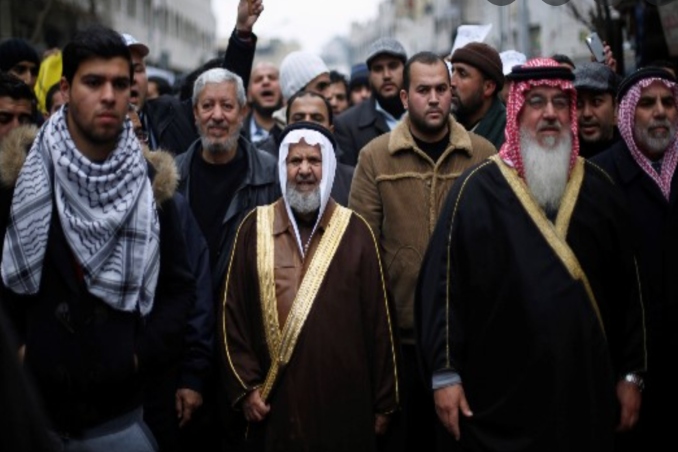Last updated on September 11th, 2021 at 07:56 am
Muslim Brotherhood comes across as the most important international political organization in the Arabic-speaking world. It is considered the dominant party in Egypt’s parliament. They have achieved 47 percent of the vote there and received 40 percent ballots in the Tunisian government.
It is also believed that in the form of Hamas, which is an explicit branch of the movement, rules the Gaza Strip. Yet even that is not all. The Brotherhood has become the most important group among Muslims in Europe and North America, too, often directing communities and representing them in dealings with the government and non-Muslim society as well.
It should be stressed, however, that it is a decentralized organization and there is no close coordination of the branches in different countries. What is most important to understand about the Brotherhood is that, despite its religion-based ideology, it should be viewed in political, not theological terms only.
Under their dominance and leadership, other smaller Brotherhood groups also exist in other Arab countries. For instance in Palestinian Authority, West Bank and Jordan, while the local Brotherhood controls the internationally recognized leadership. The Syrian National Council is the classic example of the same.
Being in the fabric of society:
It should be noted that groups of Brotherhood ran candidates for several years in Egyptian elections under the Mubarak regime. Even though they were not allowed to run as their party, yet they played a parliamentary role for years in Jordan.
Financial support is another key aspect that they seek from the Arab nations. These groups expanded exponentially in the age of ‘Arab Spring’. As Muslim immigrants moved to Europe and North America after 2010, the Brotherhood was the only international Arab organization that was ready with a strong infrastructure, a clear ideology, and ample financing. One after another country, they seized the leading positions and enjoyed direct support from a tiny minority of the communities.
READMORE: Hospitals in Dakar, Senegal’s capital, are overwhelmed as the virus spreads
The Muslim Brotherhood received political support as well and donations. It was otherwise denied to other candidates. Qatar has now co-opted several opposition activists, who attempt to garner sympathy during their frequent appearances on major national media channels.
Members of Qatar’s ruling Al Thani family created and fund social media campaigns and activist groups, such as #FreeSudan and #BlueForSudan, which have been presented to Western countries as indigenous to Sudan. Ironically, Emir Tamim’s sister, Sheikha Mayassa, who is at the forefront of financing these activities, is involved in a protracted legal battle in the US over alleged violation of human trafficking and labor laws.
Request for Government to intervene:
It is high time that Governments must intervene and critically analyze the involvement of the Brotherhood in Arab countries. Question about their origin and pattern of expansion.
Investigations must be opened to expose their plans and intentions. Their manner of movements of funds and how these funds are spent must be questioned.
There is the momentum that is picking pace and it is to request for judicial investigations into the financing of the Brotherhood. There needs to be cooperation and connection between them and concerted institutional and popular efforts to stop this financing.

